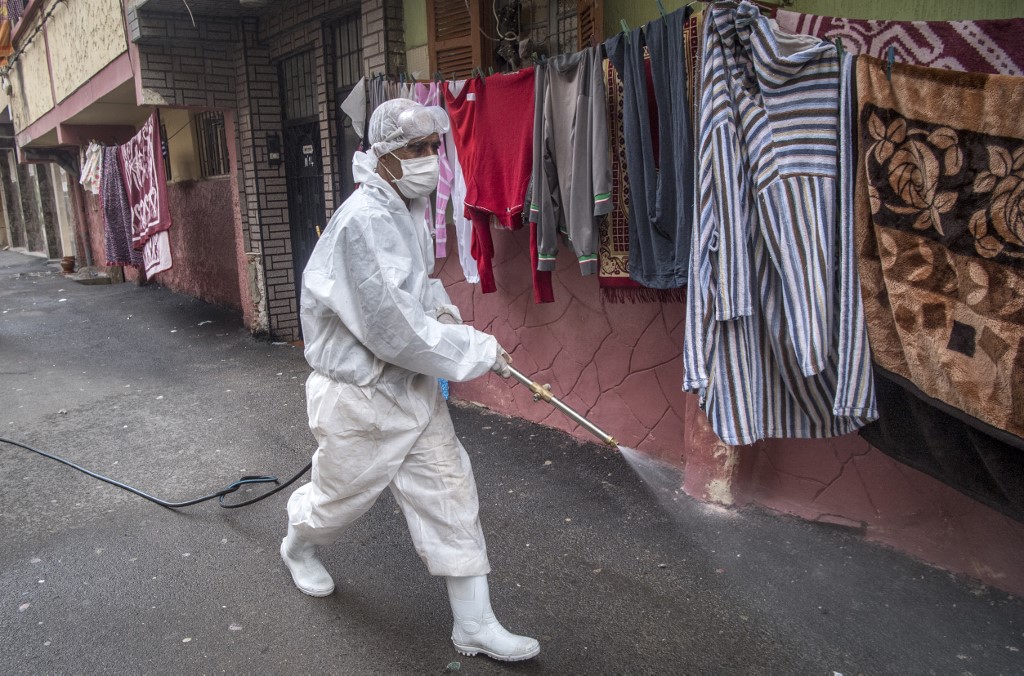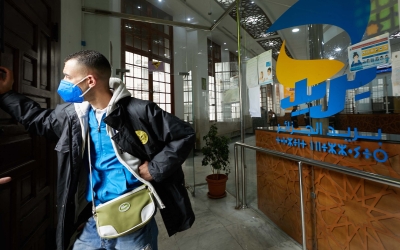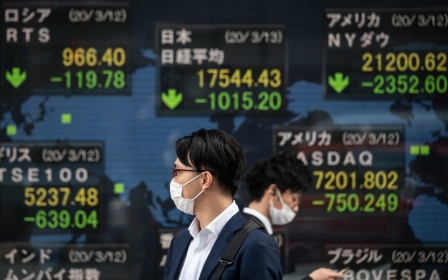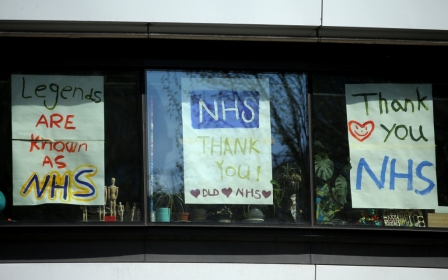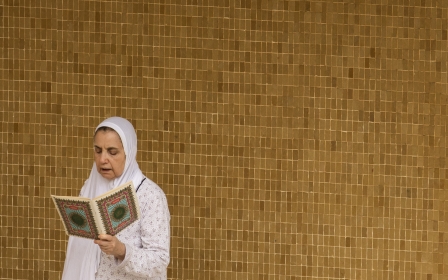How coronavirus threatens North Africa's informal workers
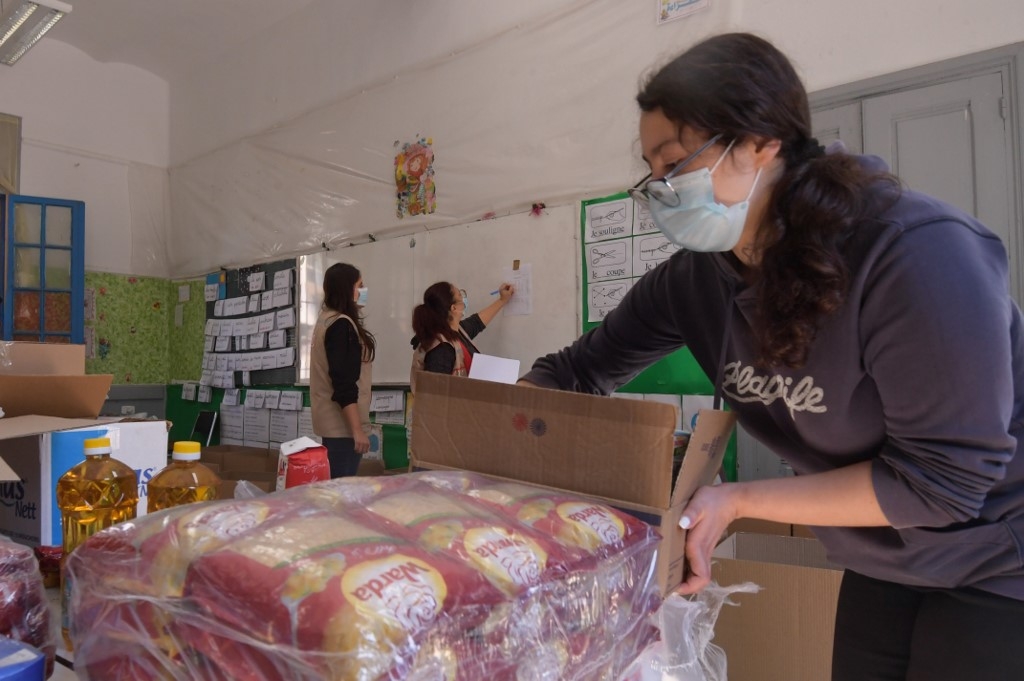
As North Africa faces both the health and economic effects of the Covid-19 pandemic, the region’s informal workers and businesses are disproportionately at risk.
Frequently working in small and crowded market spaces, reliant on face-to-face interactions with their clients or working in the homes of their customers, they are particularly exposed to the virus.
Without institutionalised sick pay or unemployment insurance, getting sick for just a short amount of time can represent an existential threat to their livelihoods.
Targeted measures
Outside of stable employment relationships, and frequently unable to work from home, informal workers are reliant on often-limited savings to sit out the lockdowns instituted across the region.
New MEE newsletter: Jerusalem Dispatch
Sign up to get the latest insights and analysis on Israel-Palestine, alongside Turkey Unpacked and other MEE newsletters
Hurdles that prevent workers outside of formal employment relationships from accessing social and health services need to be addressed
Adding a further complication, many of the classic policy tools of states to help protect industries and employment in a crisis - bailouts, tax relief, wage subsidies - are typically tied to formal business or employment status, and are thus unavailable to those in the informal sector.
In designing economic relief packages, governments across North Africa have recognised that the informal economy is in need of support, and have advanced some targeted measures, usually in the form of cash transfers.
In Tunisia, a cash transfer programme was announced that would pay 200 dinars ($70) to more than half a million households unaffiliated with any social security schemes, alongside additional funds for vulnerable families with elderly dependants and some utility bill relief.
Morocco, similarly, was quick to announce a direct cash transfer programme for vulnerable households, citing in particular those operating in the informal sector, and seeking to disburse 800 dirhams ($78) for households of two people or less, 1,000 dirhams for households of three to four people, and 1,200 dirhams for households of more than four.
Morocco is focusing on recipients of RAMED, a subsidised health insurance regime for vulnerable households that covers about 20 percent of the population.
Substantive challenges
Egypt is expanding cash transfers, both by seeking to add 60,000 new households to its pre-existing Takaful and Karama Programme and by providing a one-off payment of 500 Egyptian pounds ($32) to informal workers.
According to International Labour Office estimates, more than three-fifths of Egypt’s labour force is employed informally.
Cash transfers are not an unproblematic policy tool - their effects are typically temporary, and it can be difficult to target the right groups and to implement the transfers during a lockdown, as some of the region’s states have already experienced.
There are serious questions about the sufficiency of the programmes announced so far. And yet, they are one of the only policy options available to provide relief to those working in the informal economy at the speed needed.
Their widespread use in North Africa and across much of the developing world in this crisis is principally a positive development. More fundamentally, it has been accompanied by a recognition that the informal economy is part of the national economy, and that addressing its hardships should be a public policy priority.
Yet, these measures are also temporary. In the medium term, the region’s informal economy faces more substantive challenges. The growth of informal employment in North Africa has been closely connected to sluggish employment creation in the public and formal private sector.
If the current crisis further depresses formal employment, additional entries into the informal economy will drive up competition for sparse livelihoods in already overstretched sectors.
Platforms for dialogue
Meaningful reforms for North Africa’s informal economies will require long-term policy engagements. They will require platforms for dialogue and interaction between clusters within the informal sector and state authorities.
Micro-business programmes, already in force in Morocco, should be expanded across the region. Hurdles that prevent workers outside of formal employment relationships from accessing social and health services need to be addressed.
All of this requires a view of informal economies as a development and investment issue, not a law and order issue or an opportunity for revenue extraction.
This will remain an uphill struggle in the years to come. The programmes that North African states are currently enacting in combatting the coronavirus crisis mean that in the medium term, and in the absence of expansive debt forgiveness or restructuring programmes, they will face significant new fiscal shortfalls.
Pressures to reduce expenditures and expand the tax net in the context of post-crisis austerity will make it harder to argue for developmental support for informal economies.
And yet, the pandemic has not limited its infections to those with good healthcare, or formally registered businesses. It has highlighted not only deep inequalities in North Africa’s economies, but also the need for governments to treat their economies holistically and their populations equally.
Some of the policies of recent weeks could represent a first step. Many more lie ahead.
The views expressed in this article belong to the author and do not necessarily reflect the editorial policy of Middle East Eye.
This article is available in French on Middle East Eye French edition.
Middle East Eye delivers independent and unrivalled coverage and analysis of the Middle East, North Africa and beyond. To learn more about republishing this content and the associated fees, please fill out this form. More about MEE can be found here.



